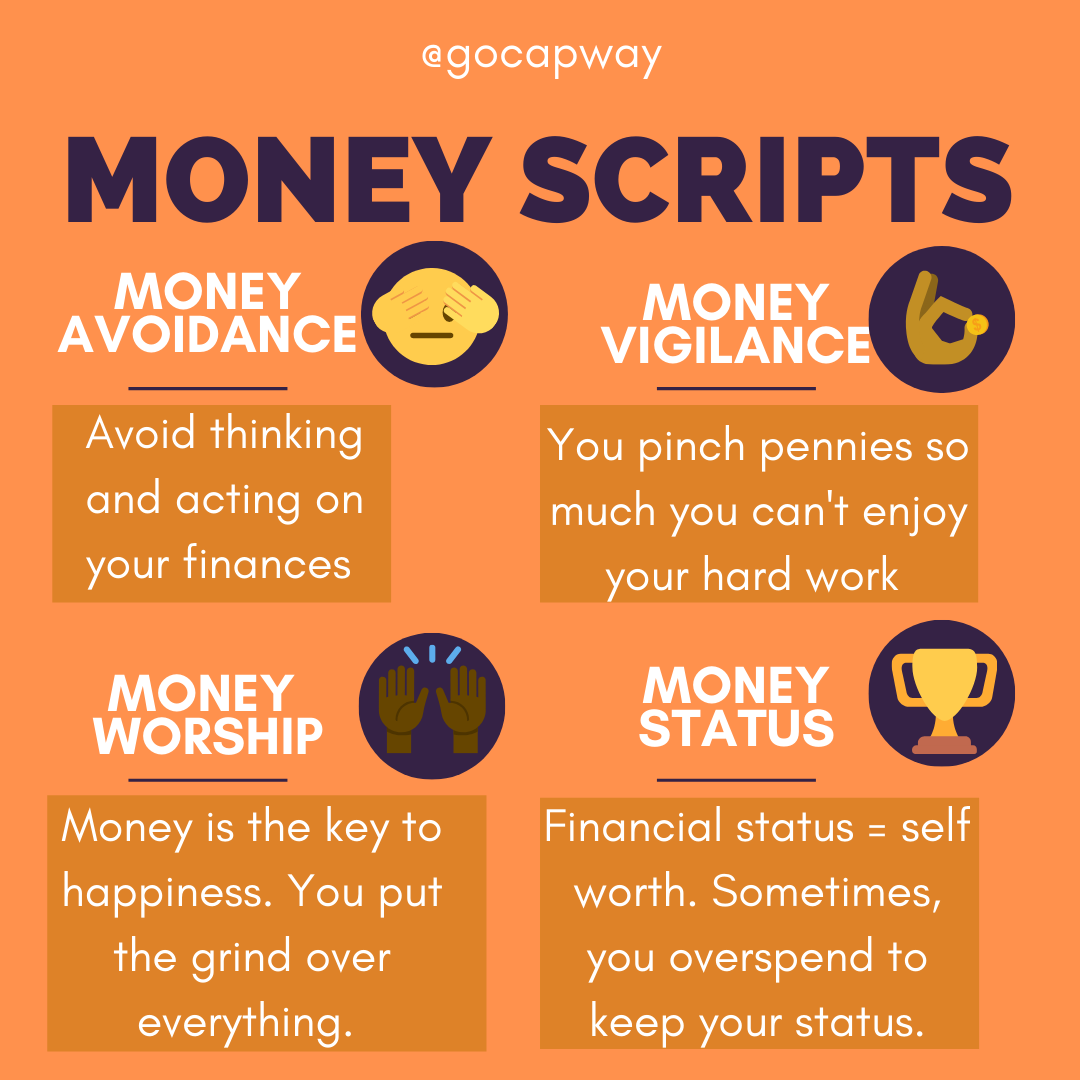We all have unconscious beliefs about everything, so why would money be any different? Each of us has what is called a “money script”, or attitudes that define how we handle our money.

This is why many of us may have trouble with sticking to conventional personal advice like “save more, spend less”, despite our best efforts. On the other hand, we could have a perfectly healthy savings account but not spend any money on ourselves.
The stories we tell ourselves about money, especially the money we earn and save, are a great driving force in our lives, even if we don’t realise it. Unpacking the narratives we have about personal finance is a great step in having a healthy, shame-free relationship with money and ourselves.
Broadly speaking, financial psychologists and planners have documented four main money scripts.
Empty space, drag to resize
Money avoiders may hold beliefs that having money is ‘bad’ or that it corrupts people. There’s no cut-and-dried prediction of how money avoiders might behave: they can overspend or underspend, although the primary beliefs are the same.
Money avoiders may over-spend because they don’t feel comfortable possessing money beyond a certain amount, or they might under-spend because of certain beliefs they hold about ‘people with money’.
Under-spenders may withhold spending on essential goods, like healthcare and food, where money avoiders may spend the bare minimum to get by. They tend to be very cautious when it comes to investing their money, perhaps not having any form of investment at all.
In addition, money avoiders may feel guilty about asking for a raise in salary, or set reasonable rates for their work, due to their negative beliefs about money.
Empty space, drag to resize
On the other end of the spectrum, there are money worshippers. People who hold money worshipping beliefs tend to see money as the solution to their problems, possibly leading to over-working, overspending, or both.
Although people who worship money seem to want more money, they may unconsciously prevent themselves from accumulating true wealth as they may not want to face other problems in their life that have nothing to do with money.
Money worshippers tend to make money the sole focus of one’s life, which can prevent them from seeing that they do have problems that money can’t solve.
Empty space, drag to resize
Linking money to status is not an inherently bad thing. After all, having money is a social marker and being able to spend money however we like is our choice. However, it becomes problematic when we link money to our self-worth, like with money worship.
Some people with this script may have had painful relationships with money growing up; for example, never feeling like one has enough may lead to overspending as an adult, because this person wants to avoid the pain or stigma that they faced growing up without enough money. On the other hand, people who grew up wealthy could also have this script, just because they may feel the pressure to keep up with the people around them.
Empty space, drag to resize
Frugality is a virtue, but taken to an extreme, money vigilance can prevent ourselves from living our best lives. For example, while it’s good to save for a rainy day, how much do you really need in your emergency fund? Could it be better spent in investments, on yourself, or on the people around you?
People who are money vigilant may feel afraid to spend money on things besides the bare necessities of life, because they feel like they never have enough money.
While these scripts may seem diametrically opposite, many of the feelings that they evoke are similar; for instance, feeling like one is “never enough” and projecting that onto our bank balance, or making money the centre of one’s problems to avoid confronting your true problems.
This is not to suggest that people who are in poverty deserve to be in poverty, but rather to explain why some people with many resources may struggle so much with their personal finances.
So, how do we begin to understand the money script that we have, and unpack the meanings and relationship that we have with money?
The first step is
learning what script you have, and begin thinking about how you would like to change your relationship to money. What would it feel like? How would your life look like? Although it seems intangible right now, acknowledging and visualising what you want is an important first step.
Empty space, drag to resize
“Your Worst Money Problems Are All In Your Head” by
Anne Kates Smith
Note: the links provided in this article are not intended to be and are not endorsement of any service, company or website by PlayMoolah.


